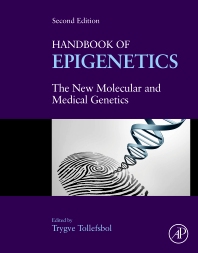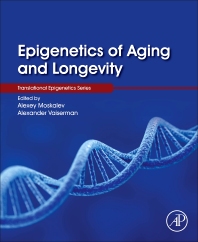| Year | Article | Links |
|---|---|---|
| 2018 | A. Schumacher (2018) REINVENTING HEALTHCARE ON THE BLOCKCHAIN - Toward a New Era in Precision Medicine. Most global healthcare systems are broken. Healthcare provision must change and insurers, healthcare providers, governments, pharmaceutical companies, and patient support groups, must be prepared to respond and lead. We can use innovative, transformational technology to build a new and improved precision health ecosystem, combining accurate diagnosis and rule-based therapies. One of these is blockchain. |  Currently only available via the Blockchain Research Institute (BRI), Toronto |
| 2017 | A. Schumacher (2017) Blockchain & Healthcare. 2017 Strategy Guide for the Pharmaceutical Industry, Insurers & Healthcare Providers. The healthcare industry needs a revolution – and it is here now. Trusted and open R&D processes, auditable & secure transactions between parties, authenticated by mass collaboration and powered by collective self-interest, rather than by fewer and fewer pharmaceutical giants motivated by profit alone. This healthcare ecosystem is immune to exorbitant drug prices, tampering, fraud, or political control. The name of the technology that makes all this happen is blockchain, a tool that will fundamentally change the healthcare sector. Blockchain will prove to be indispensable in building a global precision-medicine ecosystem that optimally connects patients, clinicians, researchers, insurers and clinical laboratories to one another. Blockchain will improve data security, data sharing, interoperability, patient engagement, big data analytics, health information exchange, fighting counterfeit drugs, R&D processes, AI-based diagnostics and fostering vertical business models. Compared to the financial markets, the healthcare industry’s participation with the technology remains in its infancy – but this can change now. This strategy guide may direct you in starting this process to transform ideas into profitable and ethical business models. |  Download [PDF] Kindle eBook [$/€] |
| A. Schumacher (2017) Aging Epigenetics, Handbook of Epigenetics II, Elsevier; in press Hardcover ISBN: 9780128053881 Imprint: Academic Press Page Count: 686 Handbook of Epigenetics: The New Molecular and Medical Genetics, Second Edition, provides a comprehensive analysis of epigenetics, from basic biology, to clinical application. Epigenetics is considered by many to be the new genetics in that many biological phenomena are controlled, not through gene mutations, but rather through reversible and heritable epigenetic processes. These epigenetic processes range from DNA methylation to prions. The biological processes impacted by epigenetics are vast and encompass effects in lower organisms and humans that include tissue and organ regeneration, X-chromosome inactivation, stem cell differentiation, genomic imprinting, and aging. |  |
|
| A. Schumacher (2017) Epigenetics of aging and longevity: challenges and future directions. Epigenetics of Aging and Longevity. Elsevier; in press Epigenetics of Aging and Longevity provides an in-depth analysis of the epigenetic nature of aging and the role of epigenetic factors in mediating the link between early-life experiences and life-course health and aging. Chapters from leading international contributors explore the effect of adverse conditions in early-life that may result in disrupted epigenetic pathways, as well as the potential to correct these disrupted pathways via targeted therapeutic interventions. Intergenerational epigenetic inheritance, epigenetic drug discovery, and the role of epigenetic mechanisms in regulating specific age-associated illnesses—including cancer and cardiovascular, metabolic, and neurodegenerative diseases—are explored in detail. |  |
|
| 2016 | A. Schumacher (2016) A 10-step lifecycle management system to improve harmonization of omics data analysis workflows. doi: 10.13140/RG.2.2.19991.78246 Recent studies have raised concerns about the reproducibility of research results, particularly in translational research. Findings that cannot be reproduced pose risks to pharmaceutical R&D, causing both delays and significantly higher costs of drug development, and also jeopardize the public trust in science. Here I discuss a practical solution to improve result quality based on a workflow lifecycle model that addresses one of the most important issues, namely method reproducibility. This article describes how adopting a method lifecycle management approach throughout the translational research process to standardize and automate omics-data processes enhances data-driven decision making and provides the valuable scientific insights to achieve the promise of precision medicine. | |
| A. Schumacher et al. (2016) Efficient genomic profiling of patients: the benefit of systems interoperability. Insight Genedata Profiler Vol. 1, 2. doi: 10.13140/RG.2.1.3093.4648 | ||
| A. Schumacher (2016) Improving the quality of translational research: A data-driven decision making in precision medicine. Part I-III, Insight Genedata Profiler Vol. 1, 2-4. | ||
| 2012 | S.W. Bihaqi, A. Schumacher, & N.H. Zawia (2012). Do Epigenetic Pathways Initiate Late Onset Alzheimer Disease (LOAD): Towards a New Paradigm. Cur Alzheimer Res, 9, 577-591 (IF: 5.0) | |
| 2011 | M. Kantlehner, R. Kirchner, P. Hartmann, J. Ellwart, M. Alunni-Fabbroni & A. Schumacher (2011) A high-throughput DNA methylation analysis of a single cell; Nucleic Acids Res., Vol.39 (2): 1-9. (IF: 7.5) Note: The presented method addresses the problems of cell heterogeneity in epigenetics research; avoiding complicated microfluidic systems and offers the opportunity for high-throughput screening in a clinical/diagnostics laboratory, as many single cells can be screened in parallel. | |
| Schumacher, Syed Bihaqi & Nasser H. Zawia (2011). Epigenetics and late-onset Alzheimerâs Disease. Epigenetic aspects of chronic disease. Springer. | ||
| 2010 | Schumacher (2010) Aging Epigenetics. Handbook of Epigenetics: The New Molecular and Medical Genetics. Elsevier. Note: A new unifying model of aging and the development of complex diseases was proposed, incorporating classical aging theories. | |
| Schumacher (2010) Nutrition, epigenetic drift and the emerging epigenetic paradigm: Lessons from neurobehavioral disorders. Nutrition, Epigenetics Mechanisms & Human Disease. Taylor & Francis. | ||
| 2008 | S.-C. Wang, B. Oelze & A. Schumacher (2008). Age-specific epigenetic drift in late-onset Alzheimer's disease. PLoS ONE; Jul 16; 3(7): e2698. (IF: 4.4) Note : Worldwide the first proof of whole genome epigenetic abnormalities in late-onset Alzheimer's disease. Featured in many newspaper articles around the globe. Paper has been selected by the Alzheimer Research Foundation as an "ARF Recommends" paper. Selected by the Faculty of 1000 Medicine as landmark must read paper. | |
| J. Mill, T. Tang, Z. Kaminsky, T. Khare, S. Yazdanpanah, L. Bouchard, P. Jia, A. Assadzadeh, J. Flanagan, A. Schumacher, S.-C. Wang & A. Petronis (2008). Epigenomic Profiling Reveals DNA Methylation Changes Associated with Major Psychosis. Am J Hum Genet; Mar; 82(3): 696-711. (IF: 12.63). Note: Cover story, which was featured in many newspaper articles around the globe. This was the worldwide the first proof of whole genome epigenetic changes in schizophrenia and bipolar disorder. Paper has been selected by the NARSAD Schizophrenia Research Forum as "Recommended" paper. | ||
| Schumacher, A. Weinhäusl & A. Petronis (2008). Design and application of microarrays in DNA methylation profiling. Methods Mol Biol. 439: 109-29. | ||
| 2007 | Schumacher, P. Friedrich, et al. (2007). No association of TDP-43 with sporadic frontotemporal dementia. Neurobiology of Aging, Jul 3; (IF: 5.61) | |
| Schumacher, P. Friedrich, et al. (2007). No association of common VCP variants with sporadic fronto-temporal dementia. Neurobiology of Aging, Jul 4; (IF: 5.61) | ||
| Schumacher (2007) Online tutorial: Schumacher's Guide #1: Bisulfite conversion of DNA for methylation fine-mapping. | ||
| Schumacher (2007) Online tutorial: Schumacher's Guide #2: Design and application of microarrays for identifying of DNA methylation. | ||
| 2006 | Schumacher, P. Friedrich, et al. (2006). No association of chromatin-modifying protein 2B with sporadic frontotemporal dementia. Neurobiology of Aging, Sept 14; (IF: 5.60). Note : First introduction of 'epigenetic' SNPs. | |
| J. Flanagan, V. Popendikyte, N. Pozdniakovaite, M. Sobolev, A. Assadzadeh, A. Schumacher, M. Zangeneh, L. Lau, C. Virtanen, S-C. Wang & A. Petronis (2006). Intra- and Inter- Individual Epigenetic Variation in Human Germ Cells. American Journal of Human Genetics; 79: 67-84 (IF: 12.63). Note: A Nature Reviews Genetics Research Highlight for 2006! | ||
| Schumacher, P. Kapranov, J. Flanagan, Z. Kaminsky, A. Assadzadeh, P. Yau, C. Virtanen, J. Cheng, N. Winegarden, T. Gingeras, & A. Petronis (2006). Microarray-based DNA methylation profiling: technology and applications. Nucleic Acids Res., Vol.34, 2: 528-542 (IF: 7.3) Note: On NAR top hot papers list 2006. Highly cited, cover story of this issue. Described technology was patented and licensed to Pharma-Company. | ||
| Schumacher & A. Petronis (2006). Epigenetics in complex diseases: from theory to laboratory praxis. Current Topics in Microbiology and Immunology: 310: 81-115. (IF: 4.61) | ||
| 2004 | T. Schwarzbraun, J.B. Vincent, A. Schumacher, D.H. Geschwind, J. Oliveira, Ch. Windpassinger, L. Ofner, M. Ledinegg, P.M. Kroisel, K. Wagner & E. Petek (2004). Cloning, genomic structure, and expression profiles of TULIP1 (GARNL1), a brain-expressed candidate gene for 14q13-linked neurological phenotypes, and its murine homologue. Genomics, Sep; 84(3): 577-86. (IF: 3.5) | |
| Schumacher & W. Doerfler (2004). Influence of in vitro manipulation on the stability of methylation patterns in the Snurf/Snrpn-imprinting region in mouse embryonic stem cells. Nucleic Acids Res., Volume 32, 5: 1566-1576 (IF: 7.3) | ||
| 2003 | Schumacher, S. Arnhold, K. Addicks & W. Doerfler (2003). Staurosporine is a potent activator of neuronal, glial and "CNS stem cell"-like neurosphere differentiation in murine embryonic stem cells. Mol Cell Neurosci., Aug;23(4): 669-80 (IF: 5.4) | |
| 2001 | Schumacher (2001). Mechanisms and brain specific consequences of genomic imprinting in Prader-Willi and Angelman syndrome. Gene Funct. Dis., 2: No.1, 1-19. | |
| 2000 | Schumacher, P. Koetsier, J. Hertz & W. Doerfler (2000). Epigenetic and genotype-specific effects on the stability of the novo imposed methylation patterns in transgenic mice. J. Biol. Chem., 275: 37915-37921 (IF: 7.7) | |
| 1998 | Schumacher, K. Buiting, M. Zeschnigk, W. Doerfler & B. Horsthemke (1998). Methylation analysis of the PWS/AS region does not support an enhancer-competition model. Nature Genet. 19: 324-325; (IF: 40.4) | |
| 2000 | Oleg Yudin, Sergey Grigoriev, Anton Lomaev, & Axel Schumacher (2000) High Speed. Tödliche Küsse (German) |  |